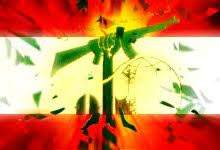Hizballah's German Presence Grows Despite Terrorist Designation
Source: https://www.investigativeproject.org/8889/hizballah-german-presence-grows-despite-terrorist

Despite Germany's efforts to curtail Hizballah-related activities, the terrorist organization's presence continues to rise across the country. German intelligence estimates that the number of Hizballah operatives increased 20 percent last year, from 1,050 members and supporters to 1,250.
There are roughly 180 Hizballah-affiliated individuals in the German state of Lower Saxony alone.
The intelligence report, reviewed by the Jerusalem Post, warns that Hizballah's mobilization "should not be underestimated in Germany" and that Hizballah's followers "maintain organizations and ideological cohesion, among other things, in local mosque associations, which are primarily financed by donations."
German intelligence previously identified about 30 mosques and cultural associations intimately connected to Hizballah or which propagate the terrorist group's Iranian-inspired, radical Shi'a ideology. The latest report asserts that Hizballah "demands the application of the Islamic legal system of Shari'a" and directs its "propaganda against Western institutions" to advance its goals.
Hizballah-affiliated associations in Germany are largely financed through membership fees and fundraising activities. They encompass a range of people, from sympathizers of the group's aims to active supporters and formal members. These local institutions also receive support from Hizballah operatives who have come to Germany from Lebanon to participate in religious ceremonies or special commemorations.
The report's findings follow Germany's ban of three Hizballah-affiliated organizations last month. Under the guise of pursuing religious and humanitarian aims, these groups allegedly collect donations for the families of fallen Hizballah fighters. Knowing that their families will receive such "martyrs" aid can encourage future generations to join the organization and fight on its behalf.
Police raided Hizballah-linked groups across seven German states last month, including Hamburg and North Rhine-Westphalia. North Rhine-Westphalia is frequently cited in reports detailing a wide range of radical Islamist activity in Germany.
Following the raids, Germany's Interior Minister spokesman Horst Seehofer said that
"those who support terrorism will not be safe in Germany, regardless of the garb in which their supporters appear, they will not find a place of retreat in our country."
Hizballah operatives exploit Germany as a key node in the terrorist group's global illicit trade network, which involves drug trafficking, money laundering, and the stolen car trade. For example, Hizballah traffics cocaine from South America through Africa to Europe, reaching key German ports for onward distribution. Beyond raising funds, previous German intelligence reports show that Hizballah uses the country as a base of operations to recruit members and purchase weapons.
The terrorist organization has also used Germany, among other countries, to store bomb-making material. With help from Israel's Mossad foreign intelligence agency, German authorities seized hundreds of kilograms of ammonium nitrate in April 2020 – which Hizballah had stockpiled in the country.
The terrorist group has relied on ammonium nitrate for terrorist plots across Europe and around the world.
Germany has accused Iran – Hizballah's main backer – of conducting significant espionage activity in the country over the past decade, including plotting attacks on Israeli and Jewish targets. In a 2017 report, Germany stated it had launched 22 criminal investigations into Iran's illegal espionage activity – more than it had looked into that of China and Turkey, two countries that engage in significant spying operations in Germany.
Following years of malicious activity in its borders, Germany designated Hizballah as a terrorist organization in April 2020, joining other Western countries such as the United States, United Kingdom, the Netherlands, and Canada. Yet most European Union countries continue to selectively outlaw the group's military wing. This approach allows Hizballah's political wing to operate freely and engage in nefarious propaganda and terror financing activities. Hizballah, however, is a cohesive and hierarchical organization that does not treat its political, terrorist, and military wings as distinct entities.
Germany faces an array of Islamist terrorist threats and have foiled numerous high-profile plots in recent years, including Islamic State-led cells that sought to target a Berlin synagogue, strike U.S. military bases, and carry out a mass-casualty attack using ricin-based biological weapons.
While working to disrupt various militant threats, German security authorities have still managed to crack down on clandestine Hizballah-related activities – especially since the group's terrorist designation. Yet Hizballah remains resilient in the face of German sanctions and continues to strengthen its presence across the country.











